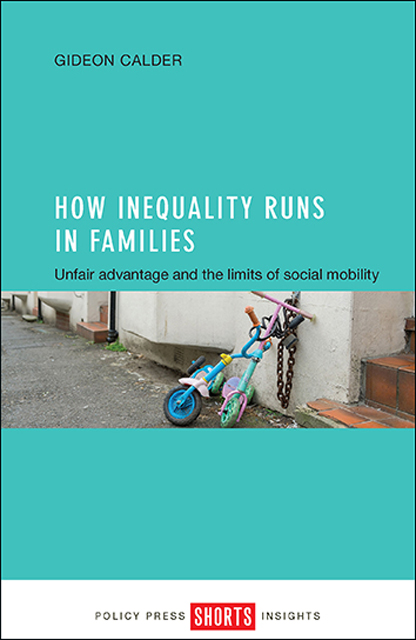Book contents
one - Introduction
Published online by Cambridge University Press: 21 April 2023
Summary
In 2014, the Social Mobility and Child Poverty Commission published a research report on how children from disadvantaged backgrounds fare in the education system, compared to their privileged peers. It includes various graphs and charts depicting the relation between socio-economic status and the likelihood of, for example, achieving the expected level at each stage of the journey through school, and getting into an elite university. One, when I read it, stood out:
Its story is shocking. This is not because it necessarily comes as a surprise. We may roughly know this picture already. It shows a world we grow used to inhabiting, without knowing the numbers. The shock here lies in the sheer starkness of those lines, and the steady directions they take. If this book were a film, and this diagram were its trailer, two things this graph tells us would boom out in the voiceover. First: kids born rich and poor start out more or less equally ‘smart’. (Or more specifically, the high-attaining poor kids are achieving roughly on a par with the high-attaining rich kids at the age of five. Pre-school achievement is evenly distributed across class divisions.) Second: between the ages of 5 and 16, the rich kids pull substantially ahead. By 16 the lowest-attaining rich kids have overtaken the poor kids initially categorised as having ‘average ability’. And across the same timespan, the average ability rich kids overtake the highest-attaining poor kids. At the age of sixteen, these gaps are still expanding. These are state school children: the picture does not include those in fee-paying education. Here, now, in the United Kingdom, how well kids do at school is strongly linked to how well-off they are. It’s the same in all other developed countries too. But it’s especially true in the UK – a country in which officially, of course, every child matters, and where a commitment to equality of opportunity is, ostensibly at least, part of the non-negotiable fabric of the kind of society we like to see ourselves as being. To say this picture reflects in any simple way what the children concerned deserve seems a basic kind of error. Children can hardly be said to have earned their different fates. They are visited upon them, via what has come to be known as intergenerational inequality: the handing down and maintenance of social advantage and disadvantage.
- Type
- Chapter
- Information
- How Inequality Runs in FamiliesUnfair Advantage and the Limits of Social Mobility, pp. 1 - 8Publisher: Bristol University PressPrint publication year: 2016



